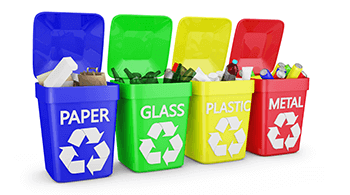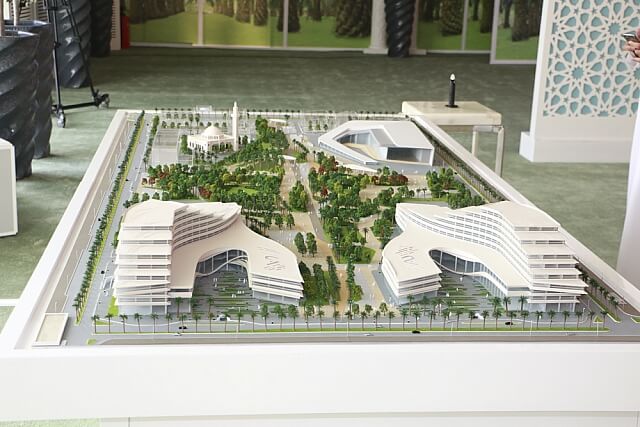Sustainability in governance and administration addresses how we run the university in terms of human resources, finance, decision-making and process implementation. The way we function as an institution and a community supports our commitment to sustainability and all decisions at AU are made and implemented with a sustainable future in mind. The commitment of the University to sustainability is demonstrated through the following policies: the Sustainability Policy, Environmental Policy, and Paper Use Policy, all of which have helped to change the way the University is governed and administered.
University Policy on Healthy Environmental
Ahlia University is committed to fulfilling its academic mission and managing all resources harmony with our natural environment as well as to meeting our social, scientific, ethical and educational leadership responsibility in actively promoting the restoration and preservation of a healthy environment for the future and in contributing to building an equitable world.
The University recognizes the importance of rethinking and correcting if necessary the heavy reliance on and the wasteful habits in the use of resources we take for granted. The commitment of the University to raising environmental awareness is demonstrated in its daily teaching and research activities, in the services the University provides to the community and society at large, and in the individual and collective decisions the University takes to offset the negative impact of the University’s operation and activities on the Environment. Moreover, the University is committed to increasing the University community’s awareness of environmental issues, by fostering the appropriate values, knowledge, and skills to enable us to work towards the restoration and preservation of the Environment.
AU shall strive to be recognized as an environmentally safe and responsible institution of learning, and as a model of environmentally responsible living. For this purpose, AU community shall make every reasonable effort to:
- Encourage all members of the AU community to be environmentally aware and the University Policy on Healthy Environment Policy to be well publicized;
- Encourage all members of the AU community to Re-think/Reduce/Re- se/Recycle. Given the costs that recycling entails, reduce and re-se options shall always be considered first; and
- Prevent the over- onsumption of energy and other resource and reduce the production of waste, and the release of substances harmful to the biosphere;
- Maintain purchasing practices that are environmentally safe and responsible whenever possible;
- Seek additional ways of achieving our goal of being environmentally safe and responsible.
University Policy on Efficient Use of Paper
All academic and administrative units of the University shall abide by the commitments made under the University Policy on Healthy Environment Policy in order to implement the principle of “rethink – reduce – reuse – recycle” in its paper usage by:
- Encouraging the use of electronic-based instead of paper- ased versions of communication (of documents, memorandums, exams, handouts, etc.) whenever possible;
- Printing and copying double-sided, when appropriate;
- Allowing and encouraging students to submit double- ided assignments.
- Purchasing paper with greater recycled and post-consumer content, when economically feasible;
For this purpose, academic and administrative units shall make every reasonable effort to:
- Encourage the use of electronic and web- ased communications, documents, assignments, etc.
- Set the default on printers and copiers as double-sided;
- Encourage students to submit assignments double-sided;
- Print and copy double-sided (documents, memorandums, exams, handouts, etc.);
- Use effectively the Moodle System to post syllabi, notes and notices in a way that reduce the over consumption of paper (e.g. post PowerPoint slides six to a page);
Sustainability in Operations
Sustainability in operations encompasses the physical activities that support the ongoing functioning of the university. Acknowledging the finite limits of the planet, we have re-oriented many activities carried out by or on behalf of AU to minimize their impact and maximize their contribution to resilient, just and flourishing human and ecological systems. We recognize that this is a responsibility shared by all members of the AU community to understand and embrace the role that they play. We consider all activities in light of their life cycle and in light of the question, “Is this really needed?” Operations at AU are closely integrated with research and education as a mutually beneficial system that encourages adaptation and improvement.

Waste Management and Recycling
Waste at the University is collected by specialized waste management companies for recycling purpose. Different type of wastes are collected in special containers to be delivered to the recycled waste management companies

Buildings and Utilities
Sustainability in building and utilities recognizes that institution need to take all orts of steps to lighten the footprint of its infrastructure.
For example, Ahila University is committed to sustainability through the following:
- Buildings are generally the largest user of energy and the largest source of greenhouse gas emissions on campus.
- Buildings also use significant amounts of potable water.
- To reduce electricity consumption all campus lighting system uses LED lights Light Emitting Diode) which is recommended by Bahrain electricity and water authority.
- Housing the university in Gosi complex where there is efficient use of water, automated lighting facility, clean environment within Gosi Complex, and the use of transparent roof to ensure efficient use of sunlight and lesser use of electricity.
- Encouraging recycling of paper and other products in the operations of the University and improving the service to the students and other stakeholders using modern technology that removes the use of paper, pen and other resources.
Institutions can design, build, and maintain buildings in ways that provide a safe and healthy indoor environment for inhabitants while simultaneously mitigating the building’s impact on the outdoor environment. Sustainability is a core commitment in AU’s Master Plan, and is taken into account in all infrastructure decisions related to the new campus in Northern City. AU also has a comprehensive set of Design Standards which it adheres to in its Project Management.
Energy
Ahlia is committed to ensure that it uses energy saving methods on its campus, apply renewable energy concepts and encourage energy saving across the campus. Examples include: The campus is housed in a building where use of sunlight as the source of light during day time is evident. The roof is transparent and sunlight lights the entire campus. Photographs of the campus indicating the use of transparent roofs could be provided. During winter, the transparent roof enables the Sun to warm up the campus eliminating the need to use heaters.
The use of translucent glasses as partitions in all classrooms and office spaces alongside large transparent glass windows to allow sunlight to pass through and make the classrooms and office rooms bright. Photographs can be given.
The appliances in the classrooms like computers and projectors are equipped with automatic switch-off facilities when not in use. This saves electrical energy
The campus is housed in a building that uses electrical devises that are energy conserving like LED
bulbs.
There is an automatic lighting and switching off mechanism provided in Gosi that switches on the lights of the corridor automatically when sun sets and switches off when sun rises. It is governed by a timer device. At midnight all corridor lights are automatically switched off every day saving electrical energy.
Security staff have been strictly instructed to monitor the premises to see unattended office rooms and classrooms where electrical power consuming devices like air-conditioners and lamps that are not controlled automatically are switched off.
Recently there was a seminar on Indian economy conducted by Indian Embassy that highlighted sustainability as a need of the hour which indicates that we encourage sustainability. UN participated in this seminar.
We are committed to adopt sustainable energy conserving mechanisms in our new campus.
In addition, Ahlia organizes conferences and seminars where research findings are presented and knowledge on energy sustainability is disseminated. Examples of papers that addressed energy sustainability are available:
Securing the future of Food, Water and Energy in the GCC
An investigation of the utilisation of energy and water conservation technologies in Bahrain: entrepreneurial opportunity
One of the PhD students investigated on the topic of sustainable buildings and is about to complete it. Title of the thesis is “Enhancing Environmental Sustainability of Healthcare Facilities: A System Dynamics Analysis Approach”.
Water
Water sustainability efforts of Ahlia are visible as follows:
Use of water within Ahlia campus is ensured to be optimum. For instance cleaning of the premises is done by efficient machines that use minimum water to clean. By this method water saving is achieved to the tune of at least 80%. Similarly only mopping practices are used to minimize water consumption.
Debris are usually brushed and water is seldom used to clean debris. No hose is used to clean floors and parts of the building with water.
Automatic devices are used in rest rooms to minimse the quantity of water used in flushing. Where plants are used, water spraying techniques are used to minimize consumption of water. Plants used within campus are those that consume lower quantity of water (photo of plants). Full-fledged maintenance team ensures that any leakage of water is addressed quickly (Gosi maintenance).
At the macro level, the university is building a campus that is designed to consume minimum quantity of water and is expected to use water saving methods in watering plants, cleaning premises and support human requirements. The campus is envisaged to be eco-friendly.
In addition, Ahlia organizes conferences and seminars where research findings are presented and knowledge on water sustainability is disseminated. Examples of papers that addressed water sustainability are available:
Transportation
Ahlia University subscribes to the use of sustainability concept in the transportation sector. Ahlia University is housed in a premises that has parking for cycles (photos can be given). This encourages people to use cycles. Some foreign students from France who studied at Ahlia University were using cycles to commute between their flat and the university.
Ahlia University is located in a place where upto 25% of their staff are located within walking distance from the university. This obviates the need to provide transportation to those staff.
Ahlia encourages its staff to use public transport. It allocates transportation allowance to a majority
of its staff that could meet the transportation expenses when travelling by public transport.
Ahlia provides sharing bus services to transport students where possible. Although in Bahrain petrol is cheap, Ahlia University uses buses to transport staff and students on occasions when groups have to travel.
Ahlia is located in a place where parking is managed based on the optimum requirement. This enables students and staff to share cars so that parking space problems are avoided. In addition Ahlia University schedules the classes in the timetable based on the availability of resources including parking space. This makes it possible to efficiently use parking space.
In addition Ahlia University organizes and encourages participation of its faculty and staff in transportation sustainability related conferences and seminars (recent papers in WASD Conference).
Almost all cars used by Ahlia staff are eco-friendly and conform to international emission standards. This supports a clean environment with very little environment pollution. In addition cars in use need to be energy efficient and meet the standards of the traffic directorate in Bahrain.
Procurement
Ahlia University purchases a wide variety of materials, goods and services to carry out its operations and support its educative mission. Most obviously, the University, as a large organization, requires a vast variety of goods and services such as IT equipment, furniture, paper, energy using appliances, travel services, cleaning products, laboratory equipment, and so on. In a way, AU finds itself as an end station for products provided through many complex global supply chains.
AU recognizes that its demand for goods and services can generate social, economic and environmental impacts, both locally and abroad. That is why the University is committed to Sustainable Procurement, life-cycle thinking, and the consideration of triple bottom line (economic, environmental and social) principles throughout its purchasing activities.



